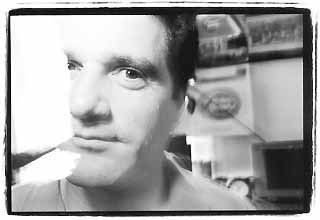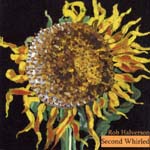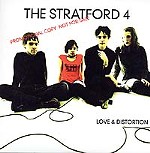Finding the Angle
By Christopher Hess, Fri., Sept. 4, 1998
|
|
Dave Sanger, founder and president of Lazy SOB records, can sum up the problems of the music industry in one succinct sentence: "There's no more Dark Side of the Moon out there," he says with a laugh.
In the absence of this kind of supernatural longevity in the rapidly changing music market, Sanger sees the way to success, or survival, in having a very specific focus. In fact, Lazy SOB's maiden release was so specific that it limited its focus to one single area – Route 66.
In 1995, the label released The Songs of Route 66: Music From the All-American Highway, a collection that, in addition to the classic Bobby Troup title song and Nelson Riddle's TV theme song, includes material from Kevin Welch, Mary Cutrufello, Jimmy LaFave, and other locally renowned but nationally unknown artists singing about the road.
"I try not to do what everyone else is doing," says Sanger. "The idea of that record was to market it on Route 66, period. That's where I knew the demand would be. It's a compilation record – where's it gonna end up, 'Various Artists?' I can't find it in Waterloo. It's buried. It's not Texas, it's not country – it's nothing. It's a million things."
In his many trips along that road, mostly as drummer for Asleep at the Wheel, Sanger found the inspiration for the idea in the abundance of songs about the road and the lack of any existing product that assembled it. He saw a need, and he filled it. Since its first release in 1995, Route 66 has sold over 9,000 copies and is now available in stores across the country, and through the Internet. For his latest project, Sanger had another inspiration:
"Everyone is whining that you can't hear real country anymore – that no one's doing real country," he says. "So, you take ridiculously real country and couple it with cheating songs that no big record company is gonna touch. Then you take singers that have been dropped from big record companies: Rosie Flores who was on Warner Bros., Kelly Willis who was on MCA, Chris O'Connell was on Capitol, and Dale [Watson] and Ted [Roddy] who were on HighTone. ...
"They've had their shot with these people, and I'm working on the momentum that they started. Take all these things and put it together, and people love it. You shoot for the cracks, and the cracks are huge. Gaping holes."
This vision culminated in The Wandering Eyes Sing Songs of Forbidden Love, a compilation released nationally this past June to eager reception. At present, it sits at Number Eight on the Gavin Americana chart, and is getting airplay on 60 stations across the U.S. Overseas marketing was also a prime consideration in assembling this lineup.
"Those people could fill a stadium in Denmark," says Sanger. "Wandering Eyes made BBC country album of the month – beat out Reba McEntire and Brooks & Dunn – on the strength of Dale Watson. That was a big part of the idea behind it. I went into it knowing this was where it was gonna go."
Add to this momentum a review on an upcoming broadcast of the public radio show Fresh Air, and you have what practically every label owner hopes for: a buzz. Sanger is lucky enough, in a sense, to have been there before. Lazy SOB released last year's debut from singer-songwriter Ana Egge, who came to Austin as a 17-year-old with a few songs and in a very short time captured the attention of a large part of the local music community.
The story of Egge's quick trip to local recognition has been told before in these pages, but as her producer, Sanger had a unique perspective on the prodigy's potential. As producer of Egge's demo, he got a call from her one day asking if he would help with her first full-length CD. When she informed him that she had sold 700 copies of her demo, it all added up.
"If you can sell 700 tapes you can sell 1,000 CDs," says Sanger. "And according to my structure at the time, at 1,000 CDs, I could break even. And there's an angle: She's a brand new artist, she's 21 years old, she's a lesbian, and she made her own guitar. That's the selling point. For Ana, though, I knew she was lucky, and you can not buy that. ... She was on Morning Edition last week and this week I've shipped 1,000 more of her records, just because of that.
"I've been in music longer than she's been alive, and I've never been involved with a buzz before. You don't know why it happens, or where it comes from. All of a sudden it just is and you have to deal with it. If you can turn it into something, great, if not it goes away."
While Sanger seeks to expand his specialty product line, he's also been developing the artist roster, however slowly. In conjunction with Bulldog Records, Lazy SOB released local tongue-in-cheek twangster Charlie Burton's Rustic Fixer-Upper last year. The year before, the Lucky Strikes' debut Twelve Past Midnight came out on the label. The jump/swing combo, getting ready to release their second full-length on Lazy SOB in September, Song and Dance, presents some problems from a marketing perspective.
"Before we were ahead of the curve," explains Sanger, "and now we're kind of behind it. They've been around for five years now. The other bands have gone and jumped them – no pun intended – so the problem is distinguishing them. There's a big difference musically between them and Big Bad Voodoo Suit Wearing Jumping Crown Review or whatever. Those bands are blues-jump bands from the Louis Jordan school. Lucky Strikes are very complex musically, and it's a whole different romance to it."
In the plans, then, are an independent publicist and two national campaigns, one for the album's release and the other for the tour to push it. For the Charlie Burton album, Sanger holds no financial responsibility; he was involved more as a hands-on consultant – there to help the project along and make sure it got done, and then relinquish control to Burton and Bulldog. Relinquishing control is not something that comes easy.
 "Unless I have my hand in the making of the record, I'm not particularly interested in making the record," he says. "This is my creative outlet. I play drums for somebody else, and no matter who I'm playing for, they're telling me what to play. So, if that's the case, that's not a particularly creative thing. So this is my creative part, and there's so much to be creative with."
"Unless I have my hand in the making of the record, I'm not particularly interested in making the record," he says. "This is my creative outlet. I play drums for somebody else, and no matter who I'm playing for, they're telling me what to play. So, if that's the case, that's not a particularly creative thing. So this is my creative part, and there's so much to be creative with."
Besides coming up with the concepts like Wandering Eyes and Route 66, Sanger engineers the recordings he's worked on (with the exception of Egge's, which was done at a larger studio outside his house). He's the producer, the second engineer (placing mikes and the like), and he's played the drums on all but the Lucky Strikes projects. Then, after the recording is done, he'll oversee the mixing, produce a video or two, market the record, sell it, and ship it. This may all seem obsessively DIY, but that's the way it has to be.
"If someone else was doing those things, I'd go crazy," chuckles Sanger. "I couldn't do that. I'm so persnickety that for me to let someone else play the drums on one of my records – I won't do it. I have to be that guy, otherwise I can't believe in it."
On the road, in his full-time gig as drummer for Asleep at the Wheel, Sanger drags his home office around everywhere, hiding in the back of the bus on a cell phone or behind his laptop until it's time for the gig, then playing, sleeping, and getting back to business. Finding angles is tough work, and with the album spilling off the shelves out there, that's what it's all about. There's a lot of competition for the music consumers' dollar.
"You're in competition with the Beatles," he exclaims. "Your record is the same size and the same price as the Rolling Stones. It's the only way to look at it."
Ironically enough, this embarrassing abundance and the major labels that keep pumping it out are what makes it possible for people like Sanger and labels like Lazy SOB to do their thing. That, and the advancement of basic recording and computer technology.
"A laptop computer, a fax machine, the low price of making CDs, and the high price of retail CDs. These things have made it possible for me to do what I'm doing," says Sanger. "In 1992, the ADAT came out – low-cost digital recording that's expandable. With the invention of that machine, coupled with good cheap mixing boards, you can make CDs in your garage; do the graphics yourself, print the CDs at a low cost.
"Driving the whole thing is the fact that major labels have maintained an extremely high retail price, $15-16 dollars. It's their greed that drives this market and enables everyone to make money. If all of a sudden the major labels drop their retail price to $10, I can't make money. ... A lot of people are just trying to get their music out, but for a small label trying to make money, it's essential that that keeps going.
A joint endeavor with two other local indies, Freedom Records and now Cold Springs Records (see stories), has made for a whole new way for small local labels to sell their wares: The Texas Music Roundup. It's a mail-order catalogue that carries, in addition to the labels' catalogues, titles from other small labels and self-released projects.
"We just got Terri Hendrix's record," says Sanger. "She can't take credit cards, but we can. So when she gets a credit card order she sends it to us, and she doesn't lose the sale. It's working."
Thanks to Internet technology, Sanger describes the record store of the future as a place where the customer can pick out songs from an all-inclusive database and make the CD he or she wants, because who wants to buy a CD for just one song?
This, says Sanger, will change the way people buy music. And if that's the case, will it also change the way albums are made, indeed the entire approach to making music? Will there be a point at all to making a complete album anymore? His remarks about Dark Side of the Moon return, now possibly prophetic.
"Hmm. Maybe we'll go back to the singles format. That would change things tremendously..."
With another angle illuminated, Sanger gets back to work.









